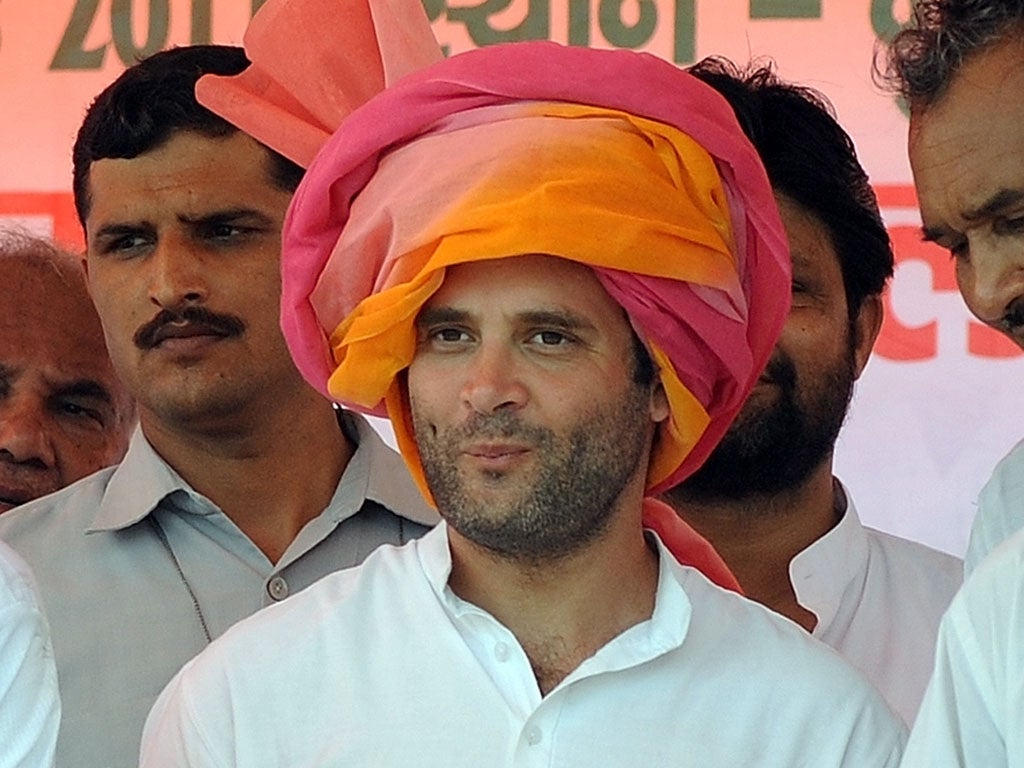Rahul Gandhi's India – a beehive of buzzing thoughts
Gandhi’s problem is that he is starting from a very low base in his current bid to win public acceptability

Your support helps us to tell the story
From reproductive rights to climate change to Big Tech, The Independent is on the ground when the story is developing. Whether it's investigating the financials of Elon Musk's pro-Trump PAC or producing our latest documentary, 'The A Word', which shines a light on the American women fighting for reproductive rights, we know how important it is to parse out the facts from the messaging.
At such a critical moment in US history, we need reporters on the ground. Your donation allows us to keep sending journalists to speak to both sides of the story.
The Independent is trusted by Americans across the entire political spectrum. And unlike many other quality news outlets, we choose not to lock Americans out of our reporting and analysis with paywalls. We believe quality journalism should be available to everyone, paid for by those who can afford it.
Your support makes all the difference.Rahul Gandhi, heir to the leadership of the Congress Party and maybe to the job of Indian prime minister, has dreams.
Today he tried to spell them out for the first time to a large conference of businessmen, who knew he was breaking away from his usual political meetings and were indulgent and even captivated as he occupied the stage for about 70 minutes.
He had two main messages in a slightly disjointed speech and then two long rambling answers as he walked around the stage at the Confederation of Indian Industry annual conference.
One was that India’s future lay in taking politics down to the pradhans (village headmen) to give “a billion people the power to solve the problems”. The other was that India was a “beehive” of voices and energy that excelled at managing complexities. “You are of the masters of complexities. Dealing with your business, your interactions with India and abroad gives you the power to conquer the world," he said.
The instant view from an audience that had enjoyed Gandhi’s adlibbing was that he had done well. But as people chatted later, criticisms began to emerge about the lack of substance. The most charitable view was that he had set out his vision of a new India with devolved political power, better motivated people, and better roads, ports and education, but he now needed to talk about how these things will be achieved.
Gandhi’s problem is that he is starting from a very low base in his current bid to win public acceptability. He has stayed largely invisible and silent for most of the nine years that he has been a member of parliament, and has created too much confusion about whether he wants to be prime minister or even a politician. His speech, naïve, sincere, and laced with a few odd stories, would have been fine if he was just starting out, say in his late 20s. But he is now 43, vice president of the Congress, and he should have added substance on policy, which he did not.
His two themes enabled him to dispel any idea that, as a dynastic heir, he could suddenly wipe away India’s problems - and also that Narendra Modi, the Bharatiya Janata Party’s Gujarat chief minister and Congress’s main adversary for the next general election, could not do so either.
“Give me all the power you want – give one individual all the power you want, give him everything, he cannot solve the problems of a billion people,” he said. Knowing that Modi has strong (and financial) backing from businessmen, Gandhi told his CII audience, “If you think there is a guy who will come on a horse charging through and set everything right, this is not going to happen". Focussing again, without mentioning him, on Modi, who is a divisive politician, he added that it took a long time to reverse seeds of disharmony. “Anger, hatred and prejudice do not contribute to growth”.
He also had a swipe at China, suggesting it was a simple straightforward country compared with India’s beehive. "China is referred to as the 'dragon' and India as an 'elephant'. But we are not an elephant, we are a 'beehive'," he said. The problem was that, unlike a "beehive which gives every member a voice", India was "clogged" and the voices of most people were not heard – which brought him back to his empowerment theme.
Mixing his metaphors to explain problems caused by the exclusion of marginalised groups such as the poor, he said: "Millions of Indians are brimming with energy. We are now sitting on an unprecedented tide of transformation. This tremendous movement of people and ideas are going to define this country in the 21st century…….A rising tide doesn’t raise people who don’t have a boat. We have to build the boat for them. We have to give them the basic infrastructure to rise with the tide.”
This was all fine, but India has no shortage of such dreams and even policies. The problem is implementation of what everyone knows needs to be done and, on that, Gandhi had nothing to say apart from devolution to a billion-plus people via village headmen.
Join our commenting forum
Join thought-provoking conversations, follow other Independent readers and see their replies
Comments